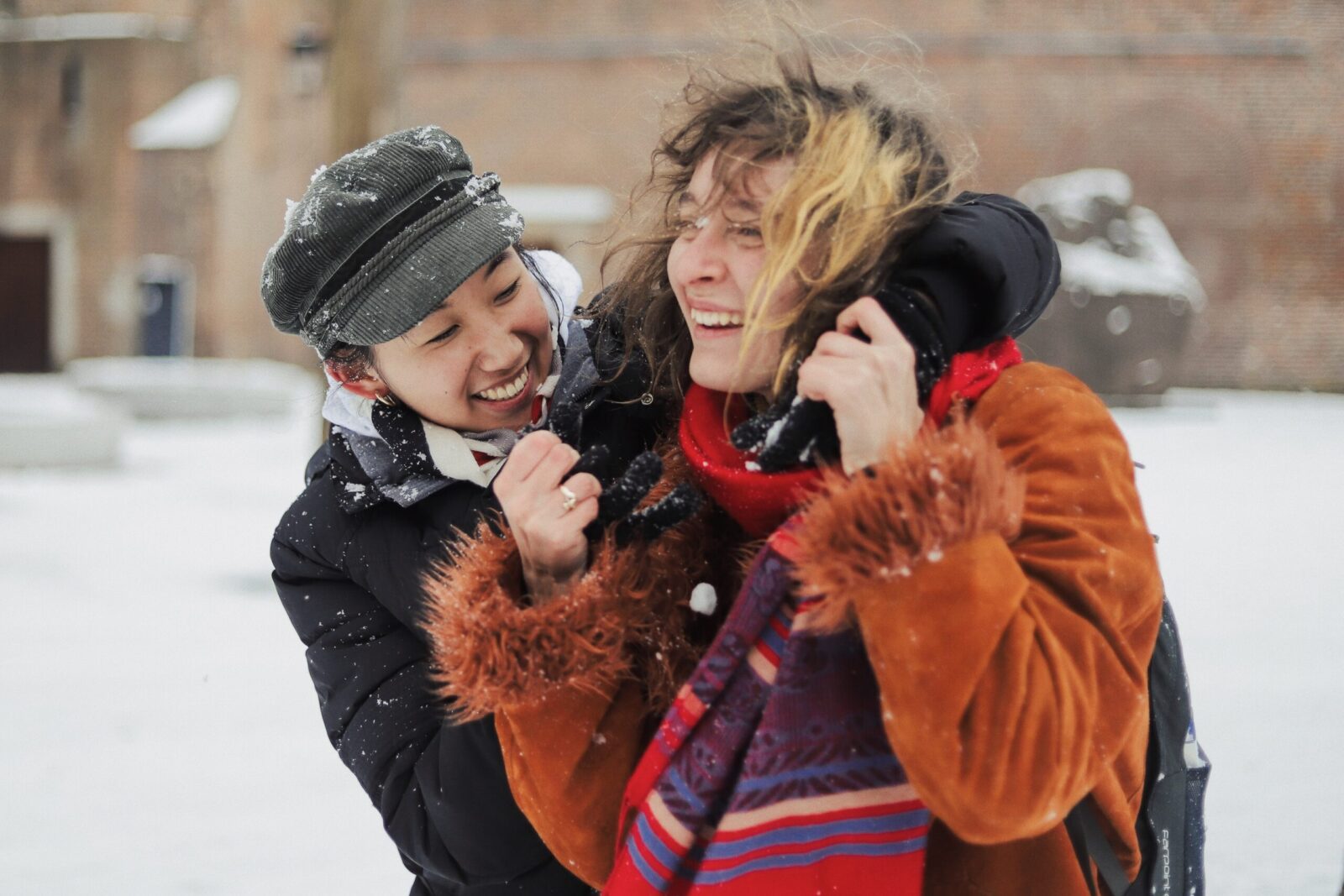Developing Relationships in Challenging Times
Don’t walk behind me; I may not lead.
Don’t walk in front of me; I may not follow.
Just walk beside me and be my friend.
– Albert Camus
It is a difficult time to develop new relationships. Anxiety has skyrocketed during the pandemic. Political divisions are tearing the country asunder and sowing distrust. Carefree virus spreaders are routinely mask shamed in the news. It should be no surprise that people are wary of just about everyone and everything right now.
Yet we need relationships to keep us going, especially in challenging times like these. We are social animals that, as social psychologists Roy Baumeister and Mark Leary document, need to belong to social groups to survive and thrive.
One of the only widely-agreed upon findings in the field of happiness research, for that matter, is that one of the most significant contributors to our well-being is the social connections we share and the time we spend with family, friends and people in our community.
What happens when our social connections dissipate during a pandemic in which socializing has become much more challenging?
As Sarah Wright of the University of Canterbury in New Zealand and I discovered in two recently published studies, when we are lonely we tend to feel awkward socially, leading to poorly choreographed social overtures that exacerbate our loneliness, creating a vicious spiral.
Our need for social connection and the ensuing loneliness that develops when we don’t satisfy this need are inauspicious at the moment. With lockdowns and quarantines abounding to quell the spread of Covid-19, it’s become extremely challenging to get together with our family and friends in person, compounding a global loneliness epidemic that began long before the pandemic.
So what to do? How do we balance the need for our physical health with our need to be socially and psychologically healthy? For a whole host of reasons—including that we tune out and allocate only partial attention when we use it—Zoom doesn’t seem to be filling that need. As I document in my book Screened In: The Art of Living Free in the Digital Age, to reduce our loneliness we go online seeking social connection; however, we usually only end up with social information, which just makes it worse.
If the solutions to developing relationships to help us get through this challenging period of our lives and progress strongly into the future do not lie on our screens, then they must exist in the real world.
Yet making social overtures in real time contains its own challenges. Putting ourselves out there renders us vulnerable to rejection, which can send us into a tailspin. Even a brief experience of social rejection can propel someone into a downward spiral replete with feelings of hopelessness, increased aggression, binge eating, and irrational, risky behaviors.
How does this play out in your life? Do you sometimes feel frustrated or disappointed when someone you thought was a good friend doesn’t take the time to call you back, or no longer seems to make you a priority in their life?
Sometimes we develop an idea in our mind of someone who is supposed to be our “best” friend or one of our closest friends. Then we enter a period where they don’t return our calls or make much effort to see us. We wonder why they are avoiding us. We feel sad, rejected and lonely.
Yet it is the nature of friendships to ebb and flow. Sometimes a friend needs space to grow, to distance, to become more independent without us around.
Perhaps you have a caring partner and they don’t. Perhaps you have children and they don’t. Perhaps your children are well adjusted and theirs aren’t. Perhaps you have a job you love and they are stuck in a dead-end job that is slowly and methodically killing their spirit.
Friends are always making social comparisons with each other. There are 101 reasons why friends sometimes need space and sometimes need proximity. For this reason, the social distance between you and a friend is a constantly shifting parameter.
To manage this distance, take stock of the people in your life who are making an active effort to develop a friendship with you. Let go of how you wish each person was acting toward you and honestly acknowledge what they are offering you at this point in time.
Reflect on each person and calibrate the effort you will also make to develop the friendship. Then select a few social actions and make them happen.
What strategies are you practicing to stay connected with your friends during the pandemic? Please share in the comments.




